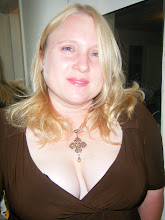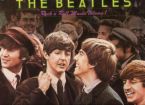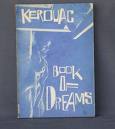
Jack's Book: An Oral Biography of Jack Kerouac
by Barry Gifford and Lawrence Lee
I bought this book at City Lights bookstore when visiting San Francisco. I wanted to learn more about the life of Kerouac, the writer I adore the most. After reading about fourteen of his books since my teenage years, I feel as if I know him well already, but I still wanted to fill in the gaps. I wanted to know the reasons for his eventual unwinding in the downward spiral of his latter years. I wanted to know what became of his friendship with Cassady, and what killed his relationships with women.
In the end, the book did not offer me any answers for two of the questions I wondered about originally. I liked the author's literary device of allowing others to actually tell the story, but felt like there was not enough of that. It came across as a narrative full of holes interspiced with sections from interviews with the other players, whose stories were as difficult to follow sometimes as the narrative. Some chronology was lost in both the narrative and the interviews, and I would go back to see if I missed something often, only to realize it was just never there or fully explained.
This book was originally published in 1978, so reading what Kerouac's friends, lovers, and acquaintances had to say about him needs to be tempered by the fact that this was less than ten years after he died. It has now been almost forty years, so I think it would be interesting if these authors did another set of interviews and see how perspectives have changed.
The authors set out to let these people who knew Jack intimately tell the story of his life. In the introduction, they state their objective as "we hoped [the result] would be a big, transcontinental conversation, complete with interruptions, contradictions, old grudges, and bright memories, all of them providing a reading of the man himself through the people he chose to populate his work."
It is interesting from a psychological standpoint this choice the authors made to let people tell the stories the way they remembered them, after their personal internal "revision" of events. The author s allowed the reader to decide for themselves which version was closest to the truth. In the end, they let Kerouac's lifelong friend and fellow "Beat Generation" crony Allen Ginsberg read the uncorrected galleys before publication of the book. Ginsberg's response, Gifford says, was branded in his memory: "My God, it's just like Rashomon - everybody lies and the truth comes out!"
s allowed the reader to decide for themselves which version was closest to the truth. In the end, they let Kerouac's lifelong friend and fellow "Beat Generation" crony Allen Ginsberg read the uncorrected galleys before publication of the book. Ginsberg's response, Gifford says, was branded in his memory: "My God, it's just like Rashomon - everybody lies and the truth comes out!"
 s allowed the reader to decide for themselves which version was closest to the truth. In the end, they let Kerouac's lifelong friend and fellow "Beat Generation" crony Allen Ginsberg read the uncorrected galleys before publication of the book. Ginsberg's response, Gifford says, was branded in his memory: "My God, it's just like Rashomon - everybody lies and the truth comes out!"
s allowed the reader to decide for themselves which version was closest to the truth. In the end, they let Kerouac's lifelong friend and fellow "Beat Generation" crony Allen Ginsberg read the uncorrected galleys before publication of the book. Ginsberg's response, Gifford says, was branded in his memory: "My God, it's just like Rashomon - everybody lies and the truth comes out!"Just like Kerouac himself, each of the versions of the truth present contradictions and yet somehow are strains of the truth, the truth as revealed through the eyes of perception. This is apparent even in his novels. Kerouac is known for his method of prose which involved telling a story of his varied experiences, often with the same circle of friends, but many of those friends interviewed for this book expressed that the version Kerouac presented in his novels was often different from the way they remembered it. For instance, the woman who was the model for the character Mardou Fox in the Subterraneans says about reading the manuscript of the novel when it was completed that "these are not the times as I knew them and the people, with the exception of his friends, were not as I knew them." This is a common refrain, and it would suggest to some that Kerouac was adjusting the truth, or perhaps not telling the truth, but I believe it was that he applied his unique filter to the experience, like we all do, and perhaps offered a romanticized version of the truth, such like the ones we all tell ourselves.
In the end, I decided that it was John Clellon Holmes whose version of truth in this novel most likely coincided with my opinion on the truth. He, of all of Kerouac's friends, seemed the be the one who understood him the most intellectually, and Ginsberg seemed the one who understood him the most emotionally.
 Holmes was a fellow writer whose book Go, (published after Kerouac's first novel and before the publication of On the Road, the book that made Jack famous) was the first written mention of "the Beat Generation", and the phrase entered American lexicon when Gillbert Millstein reviewed Go for the New York Times. In 1952, Millstein asked Holmes to write an article defining the generation for the Sunday section of the Times, and Holmes complied with "This IS the Beat Generation", and this set the stage in some respects for the movement move into media hype which in the end, became part of Jack's demise.
Holmes was a fellow writer whose book Go, (published after Kerouac's first novel and before the publication of On the Road, the book that made Jack famous) was the first written mention of "the Beat Generation", and the phrase entered American lexicon when Gillbert Millstein reviewed Go for the New York Times. In 1952, Millstein asked Holmes to write an article defining the generation for the Sunday section of the Times, and Holmes complied with "This IS the Beat Generation", and this set the stage in some respects for the movement move into media hype which in the end, became part of Jack's demise.Holmes seemed to understand that with Kerouac, with all of us, it is not the black and white, but rather the shades of grey that define us. He understood the man behind the contradictions. Others offered varied interpretations of Kerouac's baffling religious beliefs, but like Holmes, I understand that it was possible, although it seems counterintuitive, that Kerouac could both be a practicing Catholic and a budding Buddhist. Kerouac was known in his latter years for his interest in Buddhism, and several friends recount seeing him carry A Buddhist Bible around with him, but yet he could never turn away from the idea of his "little lamby Jesus" and continued to turn to his saints and Catholic traditions to feel closer to his savior. Both the ideas of Buddhism and Catholicism are apparent in his work, and he sort of moves between them. It makes sense to me personally as a former Catholic who only truly feels closer to God through worship after a traditional Catholic Mass, but who has explored Eastern religions as well, and believes one can blend those ideas into a coherent personal philosophy about religion. This is not a popular idea among fundamentalists in either sect, and even Kerouac's friends remember being confused, or simply thought Kerouac could not let go of Catholicism because of his moth er.
er.
 er.
er.Naturally, Kerouac's mother is present throught the book, and several friends offer up understanding along a lifelong theme of Jack's interdependent relationship with his mother. Perhaps that relationship has to do with Kerouac's inability to maintain successful relationships with women. The authors do little to explain Kerouac's marriages, and in fact no interviews with the three women Kerouac married are present in the book except for at the end when his last wife, Stella, discusses his return to his hometown and the day he died. She had been married to him for two and a half years at the time of his death, and helped him in those years take care of both his ailing mother and himself, by this time deep into alcoholism and seclusion.
Neal Cassady, the central figure in most of Kerouac's work, was present very little in the last ten years of Kerouac's life. I think this is an interesting facet that could be explored more deeply, and may look to other sources to help me understand what happened to their friendship that inspired Jack to both develop his unique writing style and give him material with which to fill at least two of his thirty published books. At the height of Jack's fame, right after On the Road was published and and during the media storm that followed, Cassady was arrested on trumped up drug charges and spent two and a half years in San Quentin. Kerouac explains the changes in a television performance, perhaps an excerpt from something written, as saying "we are  still great friends, but have moved on to different phases of our life", but Cassady expressed some bitterness in a letter to a journalist quoted in this book, "I'm not interested in Jack's book or all that phony beat stuff or kicks....Jack and I, we drifted apart over the years. He became a Buddhist and I became a Cayceite [the prophet Edgar Cayce]. Yeah, he was impressed with me. Let's see if he was impressed enough to send me a typewriter."
still great friends, but have moved on to different phases of our life", but Cassady expressed some bitterness in a letter to a journalist quoted in this book, "I'm not interested in Jack's book or all that phony beat stuff or kicks....Jack and I, we drifted apart over the years. He became a Buddhist and I became a Cayceite [the prophet Edgar Cayce]. Yeah, he was impressed with me. Let's see if he was impressed enough to send me a typewriter."
 still great friends, but have moved on to different phases of our life", but Cassady expressed some bitterness in a letter to a journalist quoted in this book, "I'm not interested in Jack's book or all that phony beat stuff or kicks....Jack and I, we drifted apart over the years. He became a Buddhist and I became a Cayceite [the prophet Edgar Cayce]. Yeah, he was impressed with me. Let's see if he was impressed enough to send me a typewriter."
still great friends, but have moved on to different phases of our life", but Cassady expressed some bitterness in a letter to a journalist quoted in this book, "I'm not interested in Jack's book or all that phony beat stuff or kicks....Jack and I, we drifted apart over the years. He became a Buddhist and I became a Cayceite [the prophet Edgar Cayce]. Yeah, he was impressed with me. Let's see if he was impressed enough to send me a typewriter."After Cassady's release, Kerouac still saw him occasionally, but their lives took different directions. In the latter phases, Cassady was heavily involved with Ken Kesey and his band of Merry Pranksters, and Kerouac was heavily involved with alcohol and his inner demons, which mostly revolved around his inability to deal with the sudden fame that On the Road provided him. Kerouac was held up in the media eye as "The King of the Beats", a title he resisted, and his drinking seemed to result due to this inner conflict, but because of this fame, he was finally able to sell the other books he had written.
 I found those latter years most intriguing. I had read Big Sur, his book that chronicled his downward spiral at his darkest moments, but never thought about the fact that this was 1960 and his despair continued until his death in 1969. I think it is sad that after all his interest in religion, he could never find that faith that would allow him to transcend his fame. His friends all talk about wanting to help him during those years, but being unable to stop the vicious cycle of binge drinking and depression.
I found those latter years most intriguing. I had read Big Sur, his book that chronicled his downward spiral at his darkest moments, but never thought about the fact that this was 1960 and his despair continued until his death in 1969. I think it is sad that after all his interest in religion, he could never find that faith that would allow him to transcend his fame. His friends all talk about wanting to help him during those years, but being unable to stop the vicious cycle of binge drinking and depression. The flavor, then, of this book at the end is bitterness and a failure to triumph over these demons. It is reminscent of the last ten years of Elvis Presley's life, and their lives both ended in a similiar aspect, with their agony being flushed away in the great toilet of life. He didn't live long enough to see the lasting effects of his legacy. If I could rewrite the story, it is the ending I would rewrite, much like Kerouac's mother requesting Jack change the ending to Pic, or Kerouac himself rewriting the ending to The Town and The City, what I think is his greatest novel, with the character most like him simply walking out into the West. That is the way I would like to remember Kerouac, simply walking out into the sunset for further adventures.
I would like to explore further how "beat" became "beatnik", and examine Kerouac's meaningful relationships more thoroughly, but that is beyond the scope of this review. For now, I will just leave the readers with the video above, to listen for themselves the scope of Kerouac's genius and develop for oneself your impressions.


























No comments:
Post a Comment